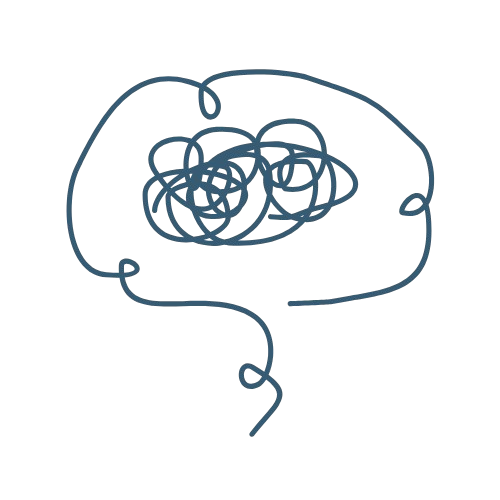Dreams. They’ve always been a mystery for all of humanity. They are moving images that seem to magically conjure in our heads when we are asleep. They tell ridiculous stories that we may never have thought of awake. They’re great, sometimes, but they can also be pretty terrible like nightmares. And some, we may forget the second we open our eyes.
But the question is, why? Why do we have dreams? And more importantly, what could these dreams possibly mean? Let’s find out, shall we?
How Dreams Happen
Dreams occur in a stage of sleep known as REM sleep. REM stands for rapid-eye movement sleep, and like the name suggests, the eyes move greatly in this stage. In the other stages, NREM, they do not move at all. The REM stage is at the end of every sleep cycle, each cycle lasting 90 minutes. We often wake up after a dream because the REM stage is the final stage of each cycle. When the final cycle has ended, you will wake up from REM sleep. However, unlike the NREM stages, REM sleep is also called paradoxical sleep because your body remains paralyzed during this stage. Why? Well, it’s because of our dreams.
Our dreams are often unpredictable, odd, and sometimes even violent. Our body creates its own safety mechanism by having us paralyzed while dreaming, in order to prevent us from acting out these dreams, as in doing so, we could potentially harm ourselves or others. Small muscle movements, called myoclonic jerks, can occur in REM sleep. The individual often feels as if they are falling, and jerk up as a response. However, the movement is typically minimal and limited, and no major position changes would be made. That being said, there are sleep disorders in which the REM stage does not function as it should. One of them is REM Sleep Behavior Disorder (RBD). RBD, affecting mostly older-aged men, is when the body is not paralyzed during REM sleep. This often puts the affected individual and those around them in bed in danger, as acting out dreams can be violent.
Now, you may be asking, why do we have dreams then? If they have the potential to harm us, so much so that our bodies have mechanisms to prevent the harm, then why do we have them? Here’s why:
Why Dreams Happen
Scientists are finding many benefits correlated with dreaming and REM sleep, proving it is nothing less than a necessity. REM sleep is essential for the body to function, and the lack of it builds up into what is known as sleep debt. There are two ways to pay off sleep debt: through microsleeps or REM rebound. Microsleeps are small phases of sleep that occur throughout the waking day due to sleep deprivation. REM rebound, on the other hand, is a long night of REM sleep to catch up on the REM sleep you were depriving yourself of for the past few days. Since dreaming is a primary aspect of REM sleep, it is easy to conclude that the need for REM sleep can be connected to dreaming.
Dreams are one of the most emotional processes in the human mind. They are often a patchwork of experiences in the present day and the past, paired with the bold and honest emotions during each experience. While many of these dreams seem unreal and absurd, the emotions attached to them are not, and they are actually very essential to emotional processes in the waking world. A study done on dream-recall found that those who spent a longer time sleeping, and dreaming, were less emotionally reactive once they woke up. It proved that dreaming helps consolidate some memories and forget unimportant ones, promoting a clearer emotional understanding and regulation of oneself. Dreams also provide a safe space for people to be outright about their emotions, as it might be unacceptable or even dangerous for them to do so in the waking world.
Why Teens Need Them
It’s no mystery that adolescents are in desperate need of sleep in this day and age. Not only are they in a phase of rapid growth that requires us around 9 hours of sleep, but the stress of school, activities, and social life also calls for a good night’s sleep. But why is it important for us to dream?
As discussed earlier, dreams help with emotional regulation. Through the consolidation of memories, our brain chooses to forget neutral memories and soften the impact of negative memories. Teenagers are notorious for mood swings from hormonal imbalances, and lack of emotional regulation would only make things worse. With unsteady emotions, performing well in school and managing the stress that comes with school and puberty would be extremely difficult. The better memory that comes with dreaming would help teenagers in school, as tests require quick recall of information. Consolidating this information would be much easier with longer sleep and dreaming. Adequate dreaming would help with emotional regulation in teens, and in turn, help them with clearer thinking and stress management.
Conclusion
Dreams aren’t just your mind’s entertainment; they are an essential part of our mental health.. Not only do they follow the necessary sleep, but they also serve a purpose of their own with emotional regulation and bettering memory. They are specifically important for adolescents, as hormonal imbalances and fast growing require better emotional regulation and sleep. So, next time you drift off to sleep, remember that dreams are working behind the scenes to prepare you for a better tomorrow.


